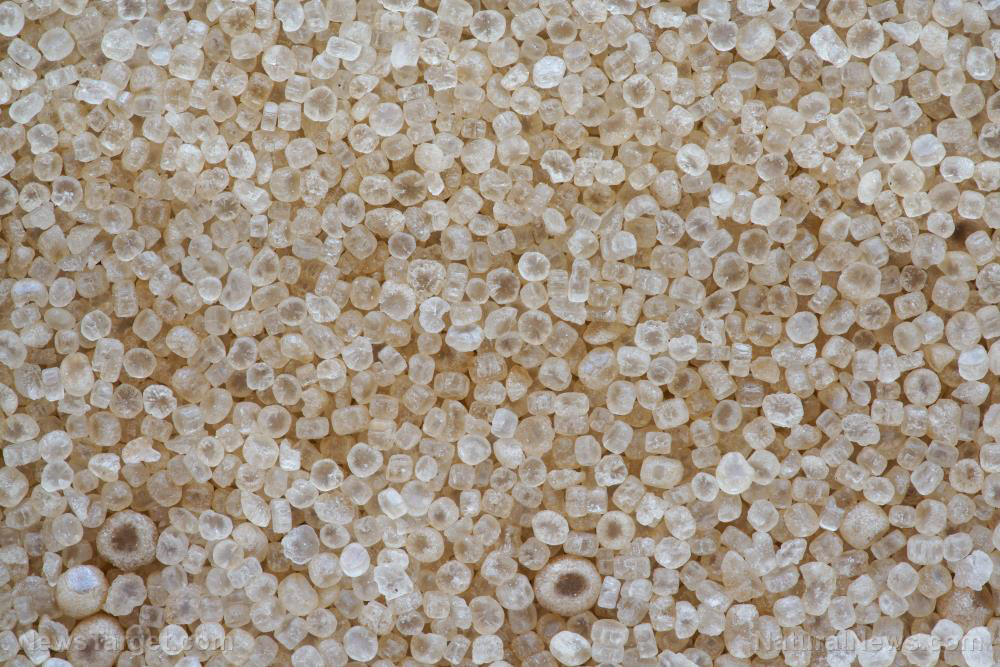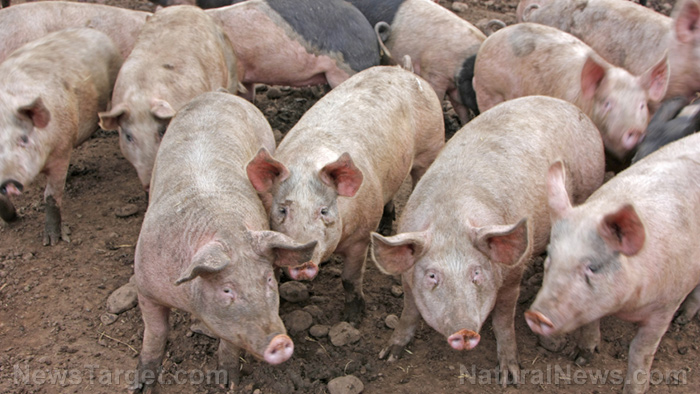
No scientist, mad or not, has ever managed to grow a slab of meat in the lab without using an expensive serum derived from animal blood. That is, not until the Ouroboros Steak.
Currently on display at the Beazley Designs of the Year exhibition in London, the Ouroboros Steak is a piece of real meat grown from human cells and expired blood donations.
Named after the emblematic Egyptian symbol of a snake eating its own tail, the Ouroboros Steak was designed to be a thought-provoking piece of art exposing the “clean” meat industry’s use of fetal bovine serum (FBS).
Environmentally-friendly, yet inhumane
FBS is an immensely expensive protein-rich growth serum used to develop meat products in the lab, which are usually touted as more environmentally-friendly than conventional meat.
The gruesome truth, however, is that FBS is derived from the blood of calf fetuses that were surgically extracted from pregnant cows slaughtered in the meat and dairy industries.
Opponents of “clean” meat made with FBS argue that the calf fetuses are likely exposed to pain and discomfort during the extraction process. It is because of the use of FBS that critics are quick to dismiss claims that “clean” lab-grown meat is more environmentally-friendly than conventional ones.
But while the Ouroboros Steak seeks to expose this industry practice and introduce an alternative that does not harm animals, the undertones of cannibalism cannot be ignored either.
To eat or not to eat
While part of an art exhibition, the Ouroboros Steak is a real piece of meat grown using human cells. Scientists and designers from the US who worked on the prototype envisioned a do-it-yourself kit that would have people harvest their own cells from the inside of their cheeks.
The cells, once fed with a growth serum derived from expired human blood, should then be set aside in a warm area for three months. Once done, the cells should have grown into meat that bears an uncanny resemblance to human flesh.
To create their prototype, the researchers purchased human cells from the American Tissue Culture Collection (ATCC). The cells were fed with old blood that would have otherwise been discarded. “Expired human blood is a waste material in the medical system,” said Grace Knight, an industrial designer who helped with the project.
Expired human blood is also cheaper and more sustainable than FBS in the long run. Orkan Telhan, a designer and researcher from the University of Pennsylvania who also worked on the project, added that their design is scientifically and economically feasible due to the resources it uses.
However, others might draw the line at the use of human blood to manufacture food since it veers dangerously close to issues of cannibalism. (Related: Here are 10 shocking and real examples of cannibalism, a surprisingly common practice around the world.)
“People think that eating oneself is cannibalism, which technically this is not,” argued Knight. But the glaringly cannibalistic undertones of the project do not help Knight's case.
Writing in The Vegan Review, journalist Anay Mridul argued that a line must be drawn somewhere. “You can’t ignore the fact that we’re talking about humans eating human cells.” Additionally, the concept itself only works within the context of a post-clean meat world.
Nonetheless, Mridul acknowledged that the project speaks volumes about technological breakthroughs in “alt-meat.” That being said, “it's not a food future many would like to see,” he wrote.
Lab-grown meat is not currently approved for human consumption anywhere in the world. But as it is a rapidly growing industry with massive implications for the future of large-scale food production, it is already projected to be worth hundreds of millions of dollars.
Read more articles about FBS and the “clean” meat industry at FoodEvolution.news.
Sources include:
Please contact us for more information.





















